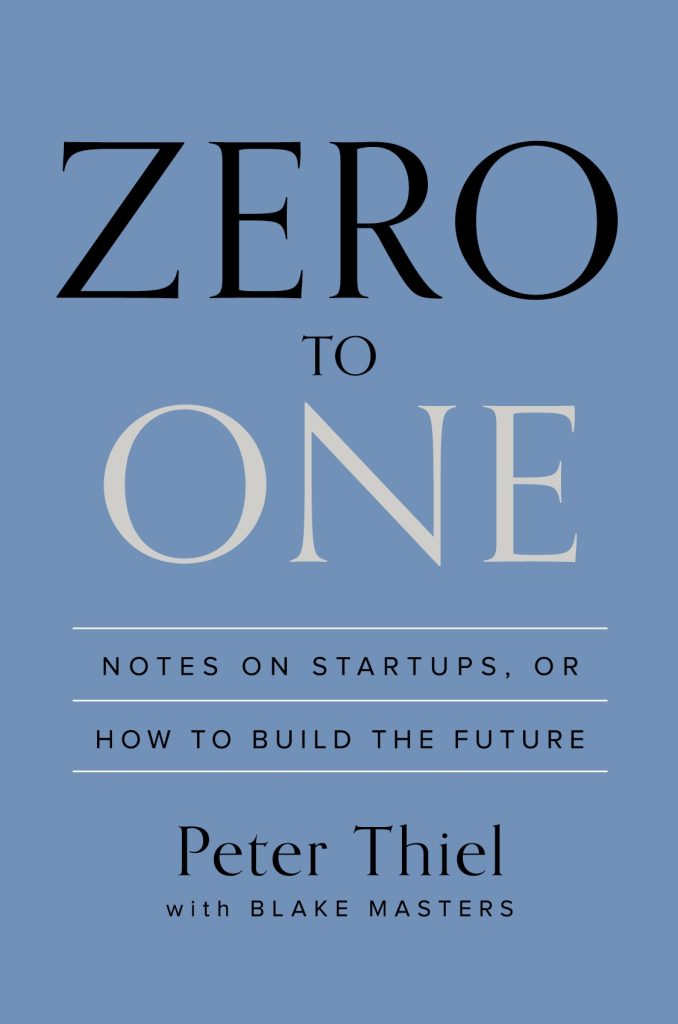Overview:
Zero to One: Notes on Startups, or How to Build the Future by Peter Thiel (with Blake Masters) is a thought-provoking guide on innovation, entrepreneurship, and the future of technology. Thiel, co-founder of PayPal and early investor in Facebook, offers insights on how startups can create a unique, valuable product that takes them from “zero” to “one.” He argues that progress comes not from copying existing ideas but from innovating in ways that produce something new and original.
Key Concepts:
1. Vertical vs. Horizontal Progress:
- Horizontal progress (or globalization) means expanding existing technologies and ideas—taking what works and replicating it. This is moving from 1 to n.
- Vertical progress (or technological progress) means creating something new, going from 0 to 1. This requires innovative leaps forward that create monopoly-like businesses, which Thiel advocates as the ultimate goal for startups.
2. Monopoly vs. Competition:
- Thiel challenges the idea that competition is good for business. He argues that successful companies create monopolies by providing unique products and services, which allow them to dominate a market. True innovation can make competition irrelevant by creating something so new and valuable that no one else can offer it.
- Monopolies aren’t necessarily bad. They have the freedom to innovate and set long-term goals, whereas companies locked in competition often focus on short-term gains and lower prices.
3. Secrets and Contrarian Thinking:
- Thiel emphasizes that great entrepreneurs and innovators think differently. They pursue “secrets,” which are truths or opportunities that few others see. The ability to identify and capitalize on a secret can lead to breakthrough success.
- He asks a critical question: “What important truth do very few people agree with you on?” Finding an answer to this can often reveal new opportunities for startups to explore.
4. The Power of Technology:
- Technology, according to Thiel, is the most powerful lever for vertical progress. However, it isn’t limited to computers or software—it encompasses all innovative solutions that create efficiency and improve life.
- Thiel contrasts the optimistic belief in technology’s potential with a pessimistic view he sees as pervasive in society today. To him, the future depends on ambitious people who still believe in tech-driven progress.
5. Building a Strong Startup:
- Founders: Great founders are crucial for the success of a startup. A strong founding team with a clear vision can set the tone for success.
- Defensible Moat: Thiel advises startups to aim for a market niche that they can dominate first (a monopoly in a small market), and then expand from there.
- Timing: The right timing is essential, and being too early or too late can make or break a startup.
- Product: Focus on building a product that 10x better than the existing alternatives, ensuring that you provide a truly superior solution.
- Distribution: Startups often fail because they don’t have a good strategy for selling and distributing their products.
6. The Role of Founders:
- Thiel discusses the importance of founders, likening them to mythological figures. He believes great companies stem from strong founders who bring a unique vision and leadership to the company. Such people must be both clear thinkers and decisive leaders.
Conclusion:
Zero to One offers a fresh perspective on entrepreneurship, focusing on how to build a future that’s not about copying but about creating new paradigms. Peter Thiel argues that innovation is essential to progress and that startups should aim to become monopolies by creating something truly unique.
